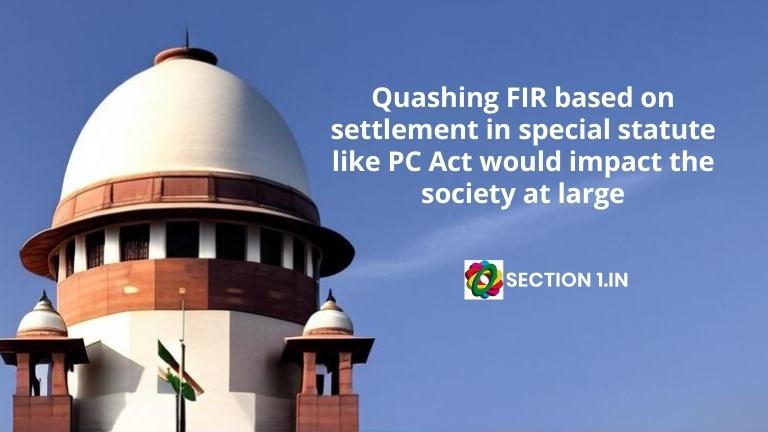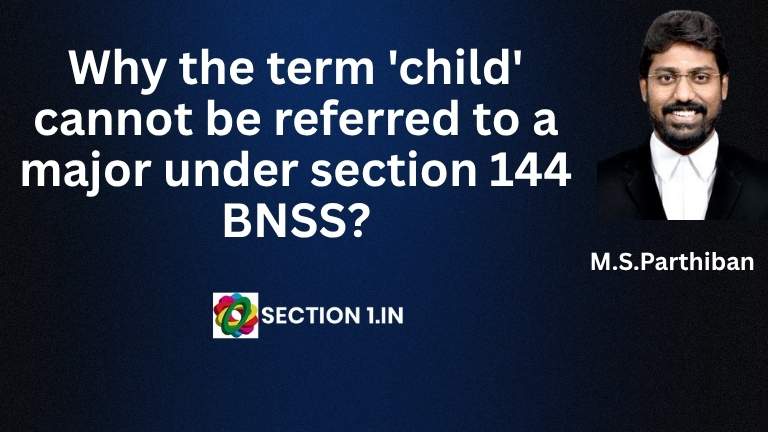Appeal
Appeal against the order refusing to quash FIR
2. Leave granted. In these appeals filed under Article 136 of Constitution of India, the appellant is seeking setting aside of the common order dated 26.07.2023 passed by the High Court of Bombay in Criminal Writ Petition No. 2546 of 2022 and Criminal writ Petition no. 1960 of 2022, wherein the High Court dismissed the petitions filed by the appellants herein, under Section 482 of Code of Criminal Procedure, 19731 seeking quashing of the FIR bearing No. RC/026/2020/A-0010 dated 24/07/2020, for offences punishable under Sections 409, 420 and 120B of the Indian Penal Code, 18602 along with Section 13(2) r/w 13(1)(d) of the Prevention of Corruption Act, 19883 and the consequent chargesheet.
Debt case for rs. 23.86 crores before the DRT disposed
4. In the year of 2013, appellant nos. 1 and 2, being Directors of the Company, had obtained sanction for a building permit and commencement certificate for plot bearing Survey Nos. 145/1, 145/3,141/1,149/2, 151, 152 and 155/25.On 15.02.2014, the respondent no. 3 State Bank of India had sanctioned a loan of Rs. 50 crores to the Company. On 30.10.2014, the Company opened a collateral security and mortgaged the commercial land. The appellant had made timely payments till 2017, while on 28/11/2017 the bank declared the loan account of the Company as Non Performing Asset with an outstanding amount of Rs. 23.86 crores. The bank also started a recovery process and filed an application before the Debt Recovery Tribunal. On 18.12.2019, the Company and respondent no. 3 filed consent terms before the DRT amounting to Rs. 15 Crore. According to the consent terms, the Company paid Rs. 20 lacs on 16.06.2020. Remaining amount of Rs. 14.88 crore was subsequently paid by the Company with interest and the loan account was closed as per the one-time settlement. Accordingly, the application before the DRT came to be disposed of.
Based on respondent no.3 an FIR of CBA
5. Respondent no. 3 lodged a complaint with respondent no. 2-Central Bureau of Investigation, against the appellants for diverging the funds from the loan account of respondent no. 2, SICOM Ltd. from whom they had allegedly availed a loan of Rs.25 Crores in 2013; and against the Company for changing the building plans of the project which resulted in the reduced value of the collateral security, without the consent of the Bank. On 24.07.2022, On the basis filed by respondent no.3, an FIR came to be registered against the Investigation, appellant by Central Bureau of Anti-Corruption Bureau, Mumbai. Charge sheet dated 31.12.2021 was filed by respondent no.2 in the above-mentioned FIR.
6. The appellant preferred a Writ Petition before the High Court bearing WP No. 2546 of 2022 under Section 482 of Cr.P.C seeking quashing of the aforementioned FIR and chargesheet.
11. We have heard the arguments and perused other relevant documents as also the judgment passed by the High Court.
Moot question
Whether criminal proceedings can be quashed upon a settlement arrived between parties?
12. The moot question which arises for our consideration in the present case is whether the criminal proceedings can be quashed based upon a settlement arrived at between the parties as per the consent terms drawn and submitted before the DRT.
Gian Singh vs State of Punjab [(2012) 10 SCC 303] judgment
13. The Counsel for the appellant heavily relied on the case of Gian Singh vs State of Punjab – (2012) 10 SCC 303 to state that their case is squarely covered by the said judgment. Relevant paragraph from the said judgment can be extracted as below:
“60 … criminal cases having overwhelmingly and predominantly civil flavour stand on a different footing for the purpose of quashing particularly the offences arising from commercial, financial, mercantile, civil partnership or such like transactions or the offences arising out of matrimony related to dowry etc or the family disputes where the wrong is basically private or personal in nature and the parties have resolved their entire dispute. In this category of cases high court may quash criminal proceedings if in its view because of compromise between the offender and victim the possibility of conviction is remote and bleak and continuation of criminal case would put accused to great oppression and prejudice and extreme injustice would be caused to him by not quashing the criminal case. Despite full and complete settlement and compromise with the victim. In other words, the high Court must consider whether it would be unfair or contrary to the interest of justice to continue with the criminal proceedings or continuation of the criminal proceeding would tantamount to abuse of process of law…”
14. This Court in Gian Singh vs State of Punjab – (2012) 10 SCC 303 has dealt with the powers of the High Court under Section 482 r/w Section 320 of the CrPC and the consequent authority of the High Court to quash criminal proceedings, FIRs or complaints under its inherent jurisdiction as in contradistinction to the power with criminal courts for compounding offenses under Section 320 of the CrPC. The High Court observed that quashing was dependent on the unique circumstances of each case and though no fixed category can be established, heinous and severe offences should not be quashed even if the parties have settled. However, this Court in Gian Singh vs State of Punjab – (2012) 10 SCC 303) categorically made an observation that:
- “61. …….. The offences of mental depravity under the Indian Penal Code or offences of moral turpitude under special statutes like Prevention of Corruption Act or the offences committed by the public servants while working in that capacity, the settlement between offender and victim can have no legal sanction at all.”
Gian singh case distinguished
15. In the light of above, the facts of the present case are distinguishable from the facts that came for consideration before this Court in the above case relied on by the appellants herein.
16. Another reference can be made to the judgment of this Court in Parbatbhai Aahir vs State of Gujrat and Anr [(2017) SCC Online SC 1189] wherein it was observed that, economic offenses involving financial and economic well-being of the state have implications which lie beyond the domain of a mere dispute between the private disputants. The High Court would be justified in declining to quash where the offender is involved in an activity akin to a financial or economic fraud or misdemeanour. The consequences of the act complained of upon the financial or economic system will weigh in the balance. Thus, it can be concluded that economic offences by their very nature stand on a different footing than other offences and have wider ramifications. They constitute a class apart. Economic offences affect the economy of the country as a whole and pose a serious threat to the financial health of the country. If such offences are viewed lightly, the confidence and trust of the public will be shaken.
17. A profitable reference in this regard can be made to the judgment in State vs. R Vasanthi Stanley [(2015 SSC Online SC 815)] wherein this Court declined to quash the proceedings in a case involving alleged abuse of the financial system. It was observed as under:
“15. …….. A grave criminal offence or serious economic offence or for that matter the offence that has the potentiality to create a dent in the financial health of the institutions is not to be quashed on the ground that there is delay in trial or the principle that when the matter has been settled it should be quashed to avoid the head on the system. That can never be an acceptable principle or parameter, for that would amount to destroying stem cells of law and order in many a realm and further strengthen the marrow of unscrupulous litigations. Such a situation should never be conceived of.
Since special statute PC Act has been invoked quashing the offence affects society at large
18. In the instant case, it is on record that consent terms were submitted by the parties before the DRT. It is admitted that the bank had suffered losses to the tune of Rs. 6.13 Crores approximately. Hence, a substantial injury was caused to the public exchequer and consequently it can be said that public interest has been hampered. Keeping in view the fact that in the present case a special statute i.e. PC Act has been invoked, we are of the view that quashing of offences under the said Act would have a grave and substantial impact not just on the parties involved, but also on the society at large. As such the High Court committed no error in declining to exercise its inherent powers in the present case, thereby refusing to quash the criminal proceedings.
Appeals dismissed
19. For the reasons stated above, we are of the view that the High Court was justified in not exercising its jurisdiction under Section 482 of CrPC. The appeals are accordingly dismissed.
Party
Anil Bhavarlal Jain & Anr vsThe State of Maharashtra & Ors – CRIMINAL APPEAL NO. ____________OF 2024 (@ Special Leave Petition (Crl.) No. 10078 of 2023) – 2024 INSC 1039 – December 20, 2024.





